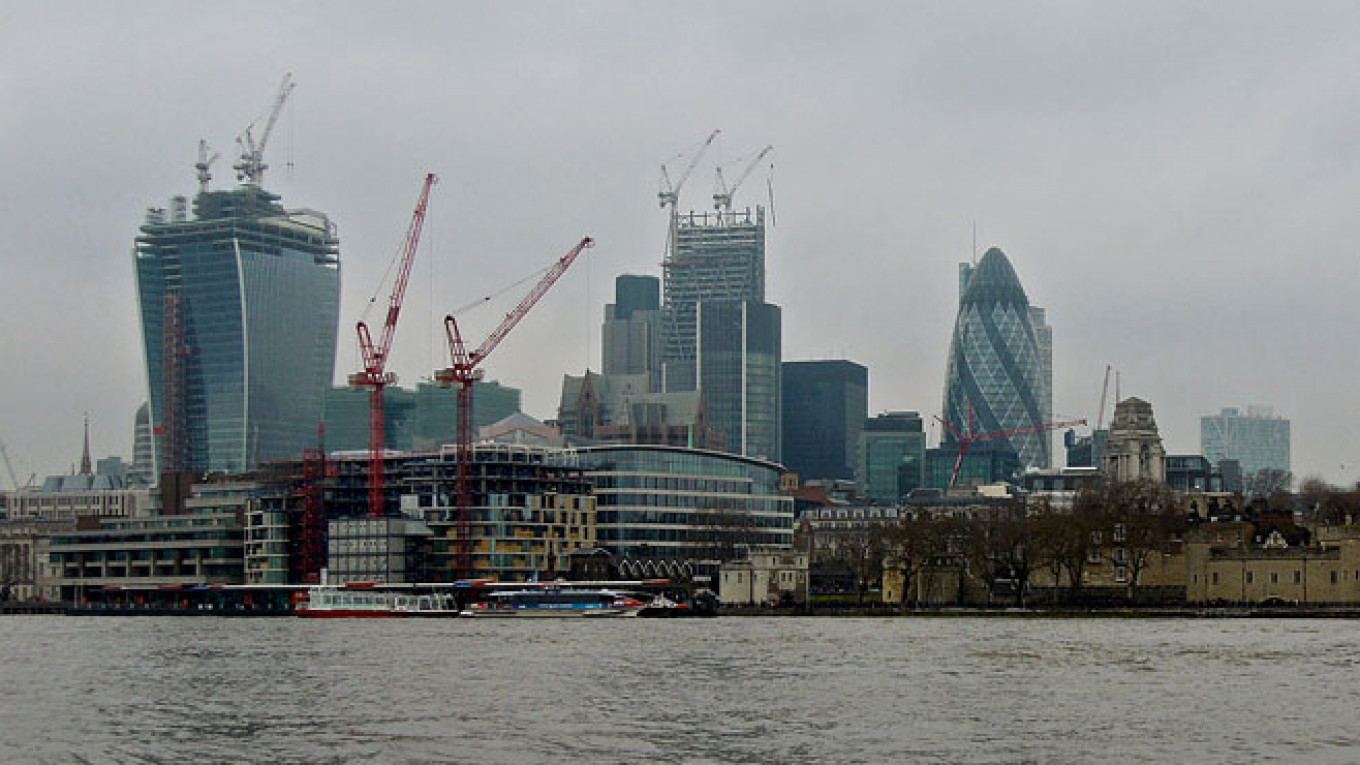The threat of the West slapping tougher sanctions on Russia after the devastating Malaysia Airlines crash in eastern Ukraine has given London-based Russian oligarchs and firms the jitters, with both groups taking steps to avoid being caught out by further punitive measures, British media reports said.
EU foreign ministers on Tuesday agreed to widen the list of individuals and entities targeted by asset freezes and visa bans, and also raised the possibility of restricting Russian access to European capital markets, defense and energy technologies.
British Prime Minister David Cameron on Monday said he wanted broader sanctions to target "the cronies and oligarchs" around President Vladimir Putin, while his spokesman said Britain was ready to consider sanctions that would damage its own interests, including in the financial sector.
The threats seem to be having an effect, as Russian oligarchs have started moving their money out of London to keep it safe, Cameron's spokesman said, The Daily Telegraph reported Tuesday.
"The measures that have been taken with regard to individuals and entities has got a correlation with some of the financial flows we have seen across Europe, including here in London. That is certainly the case," the spokesman was quoted as saying.
They may be unduly worried, however, as the spokesman said he had seen little evidence that London-based Russian tycoons were involved in supporting the Ukraine rebels — the condition for being sanctioned, Reuters reported Tuesday.
Meanwhile, London City financial institutions are in damage control mode, assessing existing deals with Russia and reviewing client lists to avoid being hit by sanctions, with particular attention to those imposed last week by the U.S.
"The long arm of the U.S. sanctions regime reaches well outside U.S. borders, so financial institutions in the City and elsewhere cannot afford to be cavalier," Chris Tattersall, a partner at accountancy firm Grant Thornton, was quoted as saying Tuesday by The Financial Times.
"Financial institutions will be reviewing their proscribed lists and making sure they are fully up to date and applied properly throughout their systems. If they are providing correspondent banking to a bank in Russia that could provide services to a [sanction-hit] individual, they should be concerned," Tattersall said.
See also:
France Tells Britain to Look at Russian Oligarchs in Own Backyard Before Damning Mistral
A Message from The Moscow Times:
Dear readers,
We are facing unprecedented challenges. Russia's Prosecutor General's Office has designated The Moscow Times as an "undesirable" organization, criminalizing our work and putting our staff at risk of prosecution. This follows our earlier unjust labeling as a "foreign agent."
These actions are direct attempts to silence independent journalism in Russia. The authorities claim our work "discredits the decisions of the Russian leadership." We see things differently: we strive to provide accurate, unbiased reporting on Russia.
We, the journalists of The Moscow Times, refuse to be silenced. But to continue our work, we need your help.
Your support, no matter how small, makes a world of difference. If you can, please support us monthly starting from just $2. It's quick to set up, and every contribution makes a significant impact.
By supporting The Moscow Times, you're defending open, independent journalism in the face of repression. Thank you for standing with us.
Remind me later.






